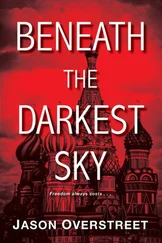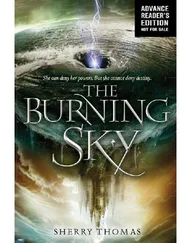Paul Bowles - The Sheltering Sky
Здесь есть возможность читать онлайн «Paul Bowles - The Sheltering Sky» весь текст электронной книги совершенно бесплатно (целиком полную версию без сокращений). В некоторых случаях можно слушать аудио, скачать через торрент в формате fb2 и присутствует краткое содержание. ISBN: , Издательство: Ecco, Жанр: Современная проза, на английском языке. Описание произведения, (предисловие) а так же отзывы посетителей доступны на портале библиотеки ЛибКат.
- Название:The Sheltering Sky
- Автор:
- Издательство:Ecco
- Жанр:
- Год:неизвестен
- ISBN:978-0060199166
- Рейтинг книги:5 / 5. Голосов: 1
-
Избранное:Добавить в избранное
- Отзывы:
-
Ваша оценка:
- 100
- 1
- 2
- 3
- 4
- 5
The Sheltering Sky: краткое содержание, описание и аннотация
Предлагаем к чтению аннотацию, описание, краткое содержание или предисловие (зависит от того, что написал сам автор книги «The Sheltering Sky»). Если вы не нашли необходимую информацию о книге — напишите в комментариях, мы постараемся отыскать её.
, the most famous of Bowles’ books, which is about three young Americans of the postwar generation who go on a walkabout into Northern Africa’s own arid heart of darkness. In the process, the veneer of their lives is peeled back under the author’s psychological inquiry.
The Sheltering Sky — читать онлайн бесплатно полную книгу (весь текст) целиком
Ниже представлен текст книги, разбитый по страницам. Система сохранения места последней прочитанной страницы, позволяет с удобством читать онлайн бесплатно книгу «The Sheltering Sky», без необходимости каждый раз заново искать на чём Вы остановились. Поставьте закладку, и сможете в любой момент перейти на страницу, на которой закончили чтение.
Интервал:
Закладка:
“I don’t know, my Captain,” said the servant, who thought the question had been addressed to him.
“Stay here. Stand by the door,” growled the captain. He was determined to find Kit, and when he found her he was going to tell her what he thought of her. If necessary, he would place a guard outside the door, and force her to stay inside to watch the patient. He went first to the main gate, which was locked at night so that no guard was necessary. It stood open. “Ah, ça, par exemple!” he cried, beside himself. He stepped outside, and saw nothing but the night. Going within, he slammed the high portal shut and bolted it savagely. Then he went back to the room and waited while the servant fetched a blanket, and instructed him to stay there until morning. He returned to his quarters and had a glass of cognac to calm his fury before trying to sleep.
As she paced back and forth on the roof, two things happened at once. On one side the large moon swiftly rose above the edge of the plateau, and on the other, in the distant air, an almost imperceptible humming sound became audible, was lost, became audible again. She listened: now it was gone, now it was a little stronger. And so it continued for a long time, disappearing, and coming back always a bit nearer. Now, even though it was still far away, the sound was quite recognizable as that of a motor. She could hear the shifts of speed as it climbed a slope and reached level ground again. Twenty kilometers down the trail, they had told her, you can hear a truck coming. She waited. Finally, when it seemed that the vehicle must already be in the town, she saw a tiny portion of rock far out on the hammada being swept by the headlights as the truck made a curve in its descent toward the oasis. A moment later she saw the two points of light. Then they were lost for a while behind the rocks, but the motor grew ever louder. With the moon casting more light each minute, and the truck bringing people to town, even if the people were anonymous figures in white robes, the world moved back into the realm of the possible. Suddenly she wanted to be present at the arrival down in the market. She hurried below, tiptoed through the courtyards, managed to open the heavy gate, and began to run down the side of the hill toward the town. The truck was making a great racket as it went along between the high walls in the oasis; as she came opposite the mosque it nosed above the last rise on its way up into the town. There were a few ragged men standing at the entrance of the market place. When the big vehicle roared in and stopped, the silence that followed lasted only a second before the excited voices began, all at once.
She stood back and watched the laborious getting-down of the natives and the leisurely unloading of their possessions: camel saddles that shone in the moonlight, great formless bundles done up in striped blankets, coffers and sacks, and two gigantic women so fat they could barely walk, their bosoms, arms and legs weighted down with pounds of massive silver ornaments. And all these possessions, with their owners, presently disappeared behind the dark arcades and went out of hearing. She moved around so she could see the front end of the truck, where the chauffeur and mechanic and a few other men stood in the glare of the headlights talking. She heard French being spoken—bad French—as well as Arabic. The chauffeur reached in and switched off the lights; the men began to walk slowly up into the market place. No one seemed to have noticed her. She stood still a moment, listening.
She cried: “Tunner!”
One of the figures in a burnous stopped, came running back. On its way, it called: “Kit!” She ran a few steps, saw the other man turning to look, and was being smothered in Tunner’s burnous as he hugged her. She thought he would never let go, but he did, and said: “So you’re really here!” Two of the men had come over. “Is this the lady you were looking for?” said one. “Oui, oui!” Tunner cried, and they said good night.
They stood alone in the market place. “But this is wonderful, Kit!” he said. She wanted to speak, but she felt that if she tried, her words would turn to sobs, so she nodded her head and automatically began to pull him along toward the little public garden by the mosque. She felt weak; she wanted to sit down.
“My stuff is locked in the truck for the night. I didn’t know where I’d be sleeping. God, what a trip from Bou Noura! Three blowouts on the way, and these monkeys think changing a tire should always take a couple of hours at least.” He went into details. They had reached the entrance to the garden. The moon shone like a cold white sun; the spear-like shadows of the palm branches were black on the sand, a sharp unvaried pattern along the garden walk.
“But let’s see you!” he cried, spinning her around so the moon’s light struck her face. “Ah, poor Kit! It must have been hell!” he murmured, as she squinted up into the brightness, her features distorted by the imminent outbreaking of tears.
They sat on a concrete bench and she wept for a long time, her face buried in his lap, rubbing the rough wool of the burnous. From time to time he uttered consoling words, and as he found her shivering, he enveloped her in one great wing of the robe. She hated the salt sting of the tears, and even more she hated the ignominy of her being there, demanding comfort of Tunner. But she could not, could not stop; the longer she continued to sob, the more clearly she sensed that this was a situation beyond her control. She was unable to sit up, dry her tears, and make an attempt to extricate herself from the net of involvement she felt being drawn around her. She did not want to be involved again: the taste of guilt was still strong in her memory. Yet she saw nothing ahead of her but Tunner’s will awaiting her signal to take command. And she would give the signal. Even as she knew this she was aware of a pervading sense of relief, to struggle against which would have been unthinkable. What a delight, not to be responsible—not to have to decide anything of what was to happen! To know, even if there was no hope, that no action one might take or fail to take could change the outcome in the slightest degree—that it was impossible to be at fault in any way, and thus impossible to feel regret, or, above all, guilt. She realized the absurdity of still hoping to attain such a state permanently, but the hope would not leave her.
The street led up a steep hill where the hot sun was shining, the sidewalks were crowded with pedestrians looking in the shop windows. He had the feeling there was traffic in the side streets, but the shadows there were dark. An attitude of expectancy was growing in the crowd; they were waiting for something. For what, he did not know. The entire afternoon was tense, poised, ready to fall. At the top of the street a huge automobile suddenly appeared, glistening in the sunlight. It came careening over the crest and down the hill, swerving savagely from one curb to the other. A great yell rose up from the crowd. He turned and frantically sought a doorway. At the corner there was a pastry shop, its windows full of cakes and meringues. He fumbled along the wall. If he could reach the door. . . . He wheeled, stood transfixed. In the tremendous flash of sunlight reflected from the glass as it splintered he saw the metal pinning him to the stone. He heard his own ridiculous cry, and felt his bowels pierced through. As he tried to topple over, to lose consciousness, he found his face a few inches from a row of pastries, still intact on their paper-covered shelf.
They were a row of mud wells in the desert. But how near were they? He could not tell: the debris had pinned him to the earth. The pain was all of existence at that moment. All the energy he could exert would not budge him from the spot where he lay impaled, his bleeding entrails open to the sky. He imagined an enemy arriving to step into his open belly. He imagined himself rising, running through the twisting alleys between the walls. For hours in all directions in the alleys, with never a door, never the final opening. It would get dark, they would be coming nearer, his breath would be failing. And when he willed it hard enough, the gate would appear, but even as he rushed panting through it, he would realize his terrible mistake.
Читать дальшеИнтервал:
Закладка:
Похожие книги на «The Sheltering Sky»
Представляем Вашему вниманию похожие книги на «The Sheltering Sky» списком для выбора. Мы отобрали схожую по названию и смыслу литературу в надежде предоставить читателям больше вариантов отыскать новые, интересные, ещё непрочитанные произведения.
Обсуждение, отзывы о книге «The Sheltering Sky» и просто собственные мнения читателей. Оставьте ваши комментарии, напишите, что Вы думаете о произведении, его смысле или главных героях. Укажите что конкретно понравилось, а что нет, и почему Вы так считаете.











